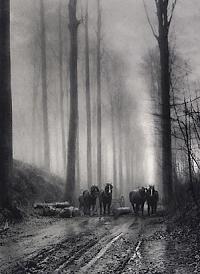|

photo - mw
_______________________
Late Afternoon of the (Academic) Elites
Timothy Burke
(....)
The best I can do is grope towards trying to do it better than we do. I don’t think there’s a magic alternative system that makes everything fair and just and accurate. I don’t even think that’s really the humane society that most of us would rather live in–I think most of would just rather that there were lots of pretty good jobs for all the pretty good people and that we stopped spending as much time as we do sorting out the best of the best and imagining that we are matching them to their entitled rewards or raging when they are not.
...(more)
_______________________
The Humanities, Unraveled
Michael Bérubé
_______________________
The Neoliberalized, Debt-plagued,
Low Wage, Corporatized University
Anthropologies
issue 16
_______________________
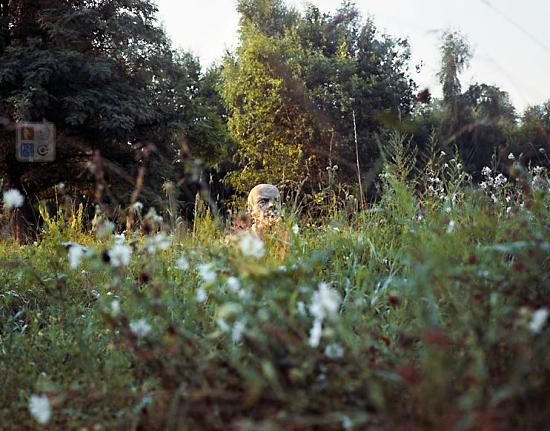
as if nothing happened
Dorothee Deiss
_______________________
Automated Labor:
The 'New Aesthetic' and Immaterial Physicality
Michael Betancourt
ctheory
In 'The Fragment on Machines' Karl Marx laid out a series of logical propositions about machine-enabled labor that appears to suggest the elimination of the living labor (human agency) required by these machines; however, this interpretation is obviously incorrect when the assumptions and context that produced his theorization are taken into consideration. Automated labor is a fundamental shift in the nature of value production, one that is potentially destabilizing to the entire capitalist productive system, revealing the inherent incompatibility between digital capitalism and social reproduction, not simply a matter of economic or class structure, but of machinic relations orchestrated by the different degrees of human agency required -- greater and lesser control produced, maintained and reified by how digital capitalism and the ideology of the digital reinforce each other through technology.
...(more)
_______________________
Capitalism and Inequality
What the Right and the Left Get Wrong
Jerry Z. Muller
(....)
Inequality is indeed increasing almost everywhere in the postindustrial capitalist world. But despite what many on the left think, this is not the result of politics, nor is politics likely to reverse it, for the problem is more deeply rooted and intractable than generally recognized. Inequality is an inevitable product of capitalist activity, and expanding equality of opportunity only increases it -- because some individuals and communities are simply better able than others to exploit the opportunities for development and advancement that capitalism affords. Despite what many on the right think, however, this is a problem for everybody, not just those who are doing poorly or those who are ideologically committed to egalitarianism -- because if left unaddressed, rising inequality and economic insecurity can erode social order and generate a populist backlash against the capitalist system at large.
Over the last few centuries, the spread of capitalism has generated a phenomenal leap in human progress, leading to both previously unimaginable increases in material living standards and the unprecedented cultivation of all kinds of human potential. Capitalism's intrinsic dynamism, however, produces insecurity along with benefits, and so its advance has always met resistance. Much of the political and institutional history of capitalist societies, in fact, has been the record of attempts to ease or cushion that insecurity, and it was only the creation of the modern welfare state in the middle of the twentieth century that finally enabled capitalism and democracy to coexist in relative harmony....(more)
_______________________

who would live on this earth and not run on it
Dorothee Deiss _______________________
The Unbearable Lightness of Precarious Employment
Navneet Alang
hazlitt
Laughter, we all know, comes in many forms: belly laughs, chortles, snickers and guffaws. But if you’ve never heard what cynical, resigned laughter sounds like, just do this: Find a group of twenty-somethings somewhere in North America and ask them if they feel confident about their capacity to find stable, high-paying jobs in the next few years. Trust me: the bitter, knowing chuckles will last a solid minute.
As it turns out, though, the general feeling about employment that simmers in conversation across this country isn’t simply anecdotal. According to a recent study by the United Way and McMaster University, those who like the far-out idea of knowing where the next paycheque is coming from are increasingly out of luck. In the Greater Toronto Area, nearly half of all workers are in some form of “precarious employment” in which they lack security, benefits—or as I call it, ‘the kind of stability that helps people not go crazy.’...(more)
It's More than Poverty: Employment Precarity and Household Well-being
_______________________
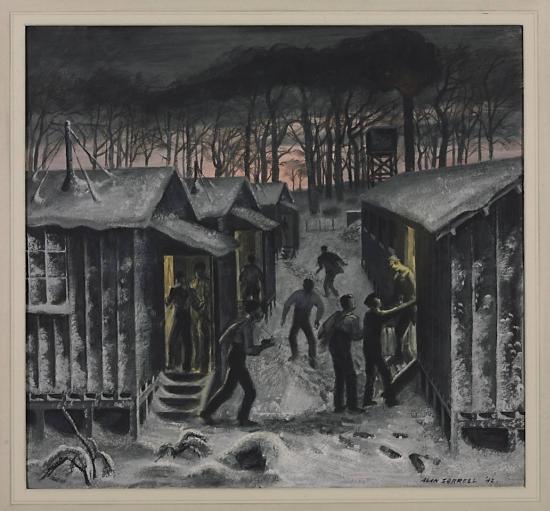
Up in the Morning Early
RAF Camp
1941
Alan Sorrell
1904 - 1974
_______________________
Countering the Luddite Itch with a Tin Switch
Brian Kim Stefans
drunken boat
Countering the luddite itch with a tin switch.
Finessing the first kiss. Burning crosses.
Did Kore earn the pinstripes? Did gyre and gamble in the wabe?
Countering the techno fix with the thin stitch
of a thimble prick. Let me tell you. Let me warn you:
Lust never troubled me.
Happy men are full of the present,
for its bounty suffices them;
and wise men also,
for its duties engage them.
Add a hyperlink. Bluntly. Bullock? Bollocks.
But don’t, don’t blink. Blow it through the bull.
Protection. Dissimulation. Footfalls.
Green mayo in the soma. Red sores on the licks.
Even the horse is stripped of his harness,
and finds a fleet fire-horse yoked in his stead.
...(more)
_______________________
Stanford Social Innovation Review
10th Anniversary Essays
Sixteen special essays on how the field of social innovation has evolved and what challenges remain ahead.
_______________________
The Quality of the Affection: Part 2
a story based on the lives of Ezra Pound and his mistress.
All the mourners had left Hidden Nest and Olga had picked up as best she could. She was alone, afraid of going to sleep. For company, she turned on the reel-to-reel and listened to some of the recordings of the Cantos she had coaxed Ezra into making in his last months. It had been a diversion to keep him occupied, to remind him of who he still was. But Olga was shaken by Ezra’s disembodied voice filling the front room – as he read, she began filing away the last lists and daily schedules. All his meals, his medicines, the dosages, how much he’d slept, she’d written it all down on sheets of lined paper.
(....)
Olga stood. She walked to the window and looked at the November moonlight on the Mendicanti canal. Ezra was calling, and his voice was like smoke. That’s how they’d lived these last years, like mendicants. She hadn’t been extravagant, but the funeral had been costly, and she hated the thought of asking Dorothy to cover the expense of renting the gondola and hiring the special gondoliers. Ezra was calling. Just last spring she’d taken out the manuscripts of the last fragments – though he hadn’t written poetry for over a decade – and propped them open in front of him and set up the tape recorder. He’d been in such despair, fumbling about, dropping the microphone into his lap – it’s all a muddle, he’d said, and she was impatient with him, bossy really, and she pointed to the page and told him to take a deep breath, to start again:
that I lost my center
fighting the world
The dreams clash
and are shattered —
...(more)
You can read Part 1, here.
Lloyd Lynford grantoa
_______________________

photo - mw
_______________________
The Christopher Dorner Complex
Matthew Cunningham-Cook
jacobin
The Dorner incident, like all incidents involving madmen, requires us to consider the madness that structures life in America.

photo - mw
_______________________
Paper Flowers & Cyber Peacocks
Maung Day
translated from the Burmese by the poet
I have come here to suck on the rims of oil rigs
There are moon-sized holes in the floors of cyber cafes
Me? I am a mass expanding gradually
& your malaria parasite
In an anthropological museum, there’s a man who breathes through the tip of his head
You live in the HTML format too
Infinities are the length of Independence Monument in Yangon
I have to get a new email address every day
Snakehead is a deity fish The temple choking in my throat
is an illegitimate star somewhere else
We have thoroughly searched the place
...(more)
guernica
_______________________
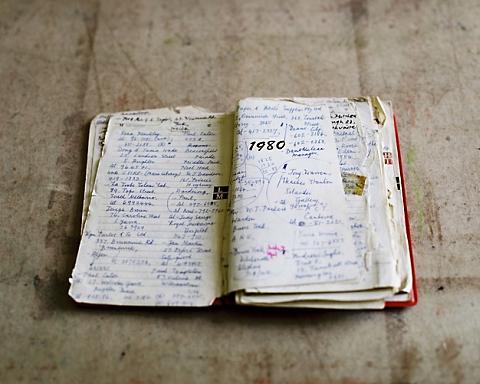
Falling into the Day
Christopher Nunn
via Joerg Colberg
_______________________
Random lines from my bookshelf:
Jean Vengua
Okir
We amuse ourselves in repetition. One desire or another
leads to self-hypnosis, the dazed
critics in sensual display.
And yet love streams across the open towers
where I wait, holed up in a question of mourning while the litigation
proceeds,
-- Gene Frumkin, from "Blueprint for a New Planet," Hambone 18
_______________________
An ungathered Paul Celan Poem
Pierre Joris
(....)
a breath braided a face that was
sharp as the newly
born keel, standing upward, ready to travel, into
the other sea — the one
with the splinter and signs
and the signsplinters.
...(more)
_______________________
I start small. I start with one sign. Instead of going to language class, I decide at my peril to engage with an associative reading of the sign. Soon, I become convinced that the thorn is a root sticking up from the ground of language.

noping
Caroline Bergvall
triple canopy
An unexpected tripping into English-language history. A poem in which noping is where nothing was. Audio recording by Graham Williams. Animation by Ciarįn Ó Meachair.
_______________________
A summary of sorts
Angela Mitropoulos
s0metim3s
All theory is a theory of crisis, in one way or another. We don’t have to think about crisis in terminal, punctual or apocalyptic ways—though many theories of crisis do. There are very real and urgent crises going one for someone, somewhere all the time. People suddenly talking about a crisis could have a lot to do with who is talking about crisis, when and where—cf, the discussion about precarious work, and crisis, as normal. Crisis can be political spin, recruitment slogan or a prelude to authoritarian measures, war. There are often clear answers to these questions about crisis, and they’re all a ways of engaging theories that we have about the world.
If, then, crises are a commonplace of capitalism, then the questions become: How are crises displaced or resolved? How do understandings of, say, moral hazard determine who bears the risk? And contracts are, above all, technologies for allocating risk, for transforming uncertainty into risk. They stretch across every distinction: law and economy, marriage and the factory, debt and wages, intimate and global—and they explain how ‘neoliberalism’ involves a claim about minimal government while being authoritarian in practice.
More broadly, radical theory, and philosophy, are also about challenging the attachments we have to theories, particularly when those theories are neither plausible nor enabling. That’s about a crisis of theory....(more)
Contract & Contagion: From Biopolitics to Oikonomia
Angela Mitropoulos ak press
_______________________

photo - mw
_______________________
Does Canada still stand for something?
Resistance begins with remembering who we are.
Darren Fleet
adbusters
(....)
Old school frontier toughness is the face of the changing shape of Canada. And it is this changing shape that makes it difficult for those who didn’t vote for Conservative Prime Minister Stephen Harper to hear him speak. Composed. Confident. Intelligent. Sure. Smart. Calculated. Cold. And though the opposition tries desperately to believe this man is duping Canadians, as more election victories pile up for his Conservative party they’re faced with a dark and discomforting truth, a truth that is becoming harder to ignore. Maybe Harper is the true voice of Canada? Maybe his detractors have given his leadership qualities too much credit? Maybe Canada has changed.
To his distraught opposition, Harper speaks about a Canada they don’t recognize, a country running on an emptiness that can only be filled with blood-thirsty consumption and growth, a country cherry-picking history, without values, without a culture beyond the dogma of allies and economic power. A country that now believes it’s destined for the petroleum stardom of Saudi Arabia, Qatar and Bahrain. A country that believes its true calling is to be an arbiter of global destiny and violence, a harbinger of environmental doom.
Canadians have been slow to catch the drift. But the rest of the world hasn’t....(more)
_______________________
Cyborg dreams
Tom Chatfield
aeon
(....)
The defining illusion of television is escape — the belief that burning hour after hour in front of the TV screen offers a refuge from the mundane world, even while it ever-more-deeply embeds us in the embrace of our sofas. But the defining illusion of interactive screens is agency. Suffused with feedback, an entire universe of data at our fingertips, we’re inclined to confuse knowledge with control, and information with comprehension. And, like my hypothetical teenage self, we’re grateful to be given the chance.
(....)
Consider the grand performance of incarnating ourselves online. It takes place courtesy of screens, wires, radio waves, incandescent dots and colours, together with the apparatus of content creation itself, from keyboards and cameras to website templates. Yet for it all to hang together, we must privilege these illusions over the merely real world surrounding us: the rooms, shelves, sofas, streets and people who uniquely share our time and place. We play, we pretend — quite brilliantly — and in return we are gifted mastery, barely sensing the embrace of other assumptions....(more)
_______________________
When the World Was Wide(r): A Requiem for PBS
Why are there no nonpartisan attacks on the Corporation for Public Broadcasting?
Andrew Grossman
The exponential explosion of television channels is yet the most logical manner in which a capitalist multiplicity attempts to mask comprehensive banality and degradation. The cruel volume of channels begs to be read as a liberation, yet the ocean shallows as it broadens, revealing a barren bedrock on which we stand dumb and erect, only wishing the waters were deep enough to drown. The image of Tantalus is inverted — we wish not to quench our thirst but kill it, for the stream runs thick with poison. But when were the waters pure? Contrary to McLuhan, did the toxins, in fact, precede the stream?...(more)via Michael Benton (Dialogic)
_______________________

photo - mw
_______________________
What survives translation
Randall Couch
In his 1961 introduction to Rae Dalven’s translations, W.H. Auden catalogued the poetic “conventions and devices” that Cavafy’s poetry fails to provide the English translator looking for equivalents: the imagery of metaphor and simile, a style or register of diction (English has “nothing comparable to the rivalry of demotic and purist” Greek, the mixture of which is the most characteristic aspect of Cavafy’s texture), ornament. Yet of the versions by several translators Auden had read, “every one of them was immediately recognizable as a poem by Cavafy; nobody else could have written it.” So what is it, he asks, that “survives translation and excites?” Auden’s answer was a tone of voice, one that “reveals a person with a unique perspective on the world.” Later, in his 2006 introduction to Aliki Barnstone’s translations, Gerald Stern amends this to a sensibility, a “tender humanism, a humanitas supreme.” Peter Bien had called it an attitude of “resignation,” understood not as despair but a kind of wisdom. I put the question to two experienced translators, both familiar to readers of Jacket2, who know Cavafy’s work, and one of whom has ably translated him: Murat Nemet-Nejat and George Economou. Is there still today a je ne sais quois, a Cavafy “magic” as Forster called it, that survives translation? If so, how would you characterize it? Is there a parallel with the quality in modern Turkish poetry that Nemet-Nejat calls eda?
...(more)
_______________________
Dialogist
Vol. I, Issue I
Editor Michael Loruss
poetry by J. Scott Brownlee, Robert Campbell, Heather Cox, Rebecca Dundon, Brad Efford, Mercedes Lawry, Adam Moorad, Charles Rafferty, Daniel Ruefman, Mark Simpson, Linda Umans, and Changming Yuan as well as art by Kev Anderson, Joel T. Dugan, Erin Robinson Grant, Anders Johnson, June Yong Lee, Kate MacDowell, Andrew Maurer, Devin Mawdsley, Rachel Seed, and Kimberly Turner.
via NewPages Blog

Off Pier Head, Viareggio, Italy
Elihu Vedder
b. Feb. 26, 1836
_______________________
from Dura
Myung Mi Kim
: :
Who even came this way, bellow or saw
Thirty and five books
Paper script document
Vowels unwritten
Kinglists proverbs praise phrases
They say it is the ocean
Indistinguishable water horizon net of worth
False vocalization of the consonantal text
Rose thorn and reported ocean
The beginnings of things
: :
What most visible staged above treeline
Plural stellar famish
Viaducts to carry away and bring back
Sewer and thread restitutive
Recast deliberate meterorite
What kind of listening is it
Doubtful wagon wheel
Exostetal complete with spongy matter
Catch sieve salve
...(more)
Myung Mi Kim at EPC and the Poetry Foundation_______________________

photo - mw
_______________________
Anacrusis
Myung Mi Kim
The twitter, the mishap, scattered phoneme, a glitch of sound in throat, a lodge in between ear and tongue and the barely formed–the blurt–[anacrusis: the one or more syllables at the beginning of a line of poetry that are regarded as preliminary to and not a part of the metrical pattern]–This talk is an anacrusis.
Inchoate. Anacrusis–the attempted, the guttural, the tenuous –pitches or tomes preceding the poem–consternations of sound not linked with any single system of language. The poem arrives, not established through regularizing, maintainable "pattern" but brought into possible articulation through multiple, polyphonic tracking. The recursive and the contingent carry sense.
(....)
What I am attempting to address is a poetics or notion of the poem that even in the midst of (or perhaps especially in view of) a fully entrenched commodity society, might make possible a rendering of the infinitesimally divisible moment. A study in markings of time–not to report, or narrate, or categorize–rather, what is the poem’s potential for registering a correspondence between speed of perception and word, for allowing a complex nexus of variables, temperings, and modulations to take place at the instant of writing.
The meaning of becoming a historical subject.
The meaning of grappling in the interstitial mark between abrasion and adumbration.
The velocity, the exultant and transitory glimpse of encounter.
To unravel and at the same moment more vigilantly wend through the rhythms,
speeches, dictions, deformations, and cadences presenced in the poem.
To practice the gestural, the rogue–transposition and approximation–the ellipses.
...(more)
_______________________
The Allegory and the Archive
Vanessa Place
presented at lemonhound
(....)
Benjamin wrote extensively and cribbed copiously on Baudelaire, poet of the allegorical; in his Passengenwerk (The Arcades Project), Benjamin writes of his desire to relate the figure of the modern and the figure of allegory, while quoting Baudelaire, who concluded that “almost all our originality comes from the stamp that time imprints upon our feelings.” Benjamin later quotes a 1933 edition of Les Fleurs du mal, which notes in turn that Baudelaire “always concentrates on the inner life, as Dante focused on dogma.” Thus, allegory, via Benjamin via Baudelaire via his 1933 editor is the psychic center that holds, or doesn?t, as the allegorical internal/external (es-ternal) whole, represented by Dante, is crumbled. The modern allegory is one of despair, melancholy, the man on the move, motored by egoism, mystification, and purely private conversation.
Conceptualism similarly maintains there is no single allegory, and no potential allegorical loss. One of the legacies of post-modernism is that polysemousness is as promised; one of the differences with post-modernism is that there is no ache for, or cognition of, truth, not even in the absence or lack thereof. Rather, there is a recognition of the truth of the soup in which the individuated we and you stew. So that there is no divide between subject and object, hence the conceptual “sobject.” Defined by me in Notes on Conceptualisms as existing in an ongoing procedural loop, self-eclipsed by degrees. Thus the antique notion of dogma, or sacred text, or single allegory is as impossible as the modern conceit of sacred interiority.
(....)
... I might aside here that my sense of ahistoricity is itself historical, and specifically American, as geography is always history. We are a people that like to be history-free, a people who pride themselves on assimilation of the melting variety, one in which it is good to fit and fit in and be as ordinary as your average, as uniquely fungible as any perfect snowflake or new masculinist lyric. So we URL our world, which is an historic gesture, historically bound, we?re Whitmanesque sans Whitman, American without England, though English all the hypertrophic way....(more)
_______________________
Memory, History, Forgetting
Paul Ricur
Translated by Kathleen Blarney and David Pellauer
google books
The phenomenology of memory proposed here is structured around
two questions: Of what there memories? Whose memory is it?
These two questions are asked in the spirit of Husserlian phenomenology. Within this heritage, priority has been given to the assertion expressed by the well-known adage that all consciousness is consciousness of something. This "object-oriented" approach poses a specific problem on the plane of memory. Is not memory fundamentally reflexive, as the pronominal form wliich predominates in French would lead us to believe: to remember (se souvenir de) something is at the same time to remember oneself (se souvenir de soi). We were determined, nevertheless, to pose the question "What?" before the question "Who?" despite the philosophical tradition that tends to favor the egological side of mnemonic experience. The primacy long accorded to the question "Who?" has had the negative effect of leading the analysis of mnemonic phenomena to an impasse, when the notion of collective memory was to be taken into account. If the "I" in the first person singular is too hastily declared the subject of memory, the notion of collective memory can take shape only as an analogical concept, even as a foreign body in the phenomenology of memory. If one wishes to avoid being stymied by a fruitless aporia, then one must hold in abeyance the question of attributing to someone—hence, to any of the grammatical persons—the act of remembering and begin with the question "What?" In accordance with solid phenomenological doctrine, the egological question—whatever the ego may signify—should come after the intentional question, which is imperatively that of the correlation between the act (the noesis) and the intentional correlate (the noema). The wager made in this first part devoted to memory, without regard to its fate over the course of the historiograpliical stage of the relation to the past, thus hinges on our ability to carry out a phenomenology of memory, the objective moment of memory, as far as possible.
pdf available at Monoskop
_______________________

photo - mw
_______________________
From "Mozart's Third Brain"
Göran Sonnevi
Translated from the Swedish by Rika Lesser
(....)
LXXX
Dance is born out of the deepest interior of our bodies As if the light there
were streaming out, out of each body part's smallest movement
We hear gasping breaths We behold mouths open in trance
Out of them light also issues, in the whirling darkness
The stone falls through millennia The clear water's darkness
deeper and deeper But the vanishing is only apparent The
construction of enormity grows and grows In its transparency
Pain's nadir, deeper and deeper At its zenith
Identification with pain, annihilation of pain, is impossible
And yet it's there Like the entrance into darkness
May I touch your darkness? I would so like to
Forms of power move in the invisible Even
the anti-empire has power, I understand Together
we have the power to sublate power, I im-
agined once Even if only within ourselves
But there is no way to place oneself outside Night has no limit
It is toward infinity I want to go Unimaginably
What takes place in this thinking substance? The play of the mind's
faculties, the dance, across the inner, shimmering surfaces
For me there was no limit For me there is no
limit, except at the instant of snapping, even were it
endlessly stretched We will meet in the silence, after the dance
What does the voice communicate? As if I never knew
in advance It comes with all its potentials
Invisible Out of its fold, foldings, a face peers
as if it were Harlequin-Mozart The great darkness of the eyes! Also
their smile Quick, friendly We can be like that too
My vision is now given to the Eye-Brain Yours, you who
look at me, out of your femininity, half turned away, almost with
your back to me So that we will not burn up? I hear
your voice It exists in the vast play of the voices, their light
What kind of movement up from death? Is such a thing possible at all?
A flame rises from the ashes, dances, offers itself, its body
in its moments of stillness, a prayer Coiling into itself
Unwinding again Returning to the ruins of silence
(....) ...(more)
A Very Brief History Of Modern Swedish PoetryJohannes Göransson TYPO 7
_______________________

photo - mw
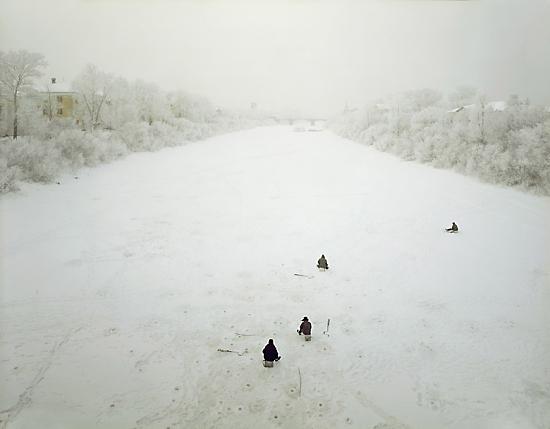
Ice Fishing, Vologda
Russia/Ukraine
2000-2004
Andrew Moore
_______________________
Five Poems about Poetry
George Oppen
Parousia
Impossible to doubt the world: it can be seen
And because it is irrevocable
It cannot be understood, and I believe that fact is lethal
And man may find his catastrophe,
His Millennium of obsession.
air moving,
a stone on a stone,
something balanced momentarily, in time might the lion
Lie down in the forest, less fierce
And solitary
Than the world, the walls
Of whose future may stand forever.
...(more)
_______________________
Joke
John Latta
(....)
Trees are like clothes, they . . . No. From the point of a pen things stand for a time. As long as one goes on with it, going on being eventually to forget what one started out to do. I think of soap, alone, no use, for no reason in the world I can tell. Secrets are locked up everywhere in procedure. Tell me the time and I’ll tell you an unkempt joke. The hours are like clouds, their coming and going directions obvious. But, as far as I can tell, writing, like its poor cousin speech, has no beginning.
—
Clark Coolidge, out of Mine: The One That Enters the Stories
(....)
Filler. Nostalgia filler. Shelve inconsequential nostalgia filler.
Failure. Shelve inconsequential go-go. Americana go-go. Failure.
Failure. Tourist Cabin. Joke hoax brands in joke Icebox. Failure.
—
Kenward Elmslie, out of “Fiscal Nonsense”
...(more)
_______________________
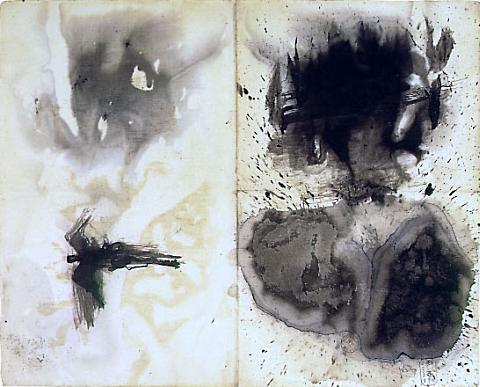
Victor Hugo
ca. 1875
Art of Victor Hugo
an overview of his drawings
_______________________
Poems
Simon Perchik
Nothing enters painlessly, the Earth
chucks up our hubcaps, puddles, rust
as mothers long ago learned
--we are taught to kiss
with our mouth closed, to hear
their dark, bent
and the creak we cannot see
unrolls the Earth
the crushed lullabies, mufflers
and evenings
--I'm hauling this sun
back into the ground
into an ocean never heard before
--carting a light that wouldn't wait
whose first breath came from this dark
and the last, half asleep, again
carried down in my arms.
...(more)
Milk
.....................................................
Five Poems
Simon Perchik
White Whale Review
Poems
Simon Perchik
3am
Simon Perchik : eight poems
Simon Perchik in conversation with David Baratier
jacket
Simon Perchik interview
Here Comes Everybody
_______________________

In Italian
1983
Jean-Michel Basquiat
1960 - 1988
Gagosian Gallery
via
_______________________
The Sound of Violence
Music of King Philip's War and Memories of Settler Colonialism in the American Northeast
Christine DeLucia
(....)
... the Northeastern soundscape was never wholly controlled by Euro-Americans. Counter-traditions of indigenous musicality associated with the war and its aftermath also endured, affirming indigenous continuity, presence, and power in a region too typically represented as devoid of Native peoples following the colonial "Indian Wars." By tracing a range of metamorphoses in music connected to King Philip's War, we can see how unstable memories of these events became over the centuries, adjusting in response to changing social circumstances and musical trends. We can also better understand how intensely localized commemorative sensibilities could be. For many composers and performers inspired by King Philip, their attentions were less beholden to national ("American") articulations of identity, and more so to the minor, even parochial, concerns of particular towns, regions, and tribes.
Additionally, while the mid-nineteenth century brought a flowering of musical treatments of Philip, it is important to contextualize this period within a longer sweep of time. Native and colonial peoples all cultivated distinctive forms of music-making prior to the crisis of the 1670s, while in the twentieth and twenty-first centuries, Algonquian communities and their music have undergone noteworthy revivals. Recent mainstream revisitations of the war's meanings have also used music as a tool for re-centering indigenous practices conventionally marginalized by popular interpreters. Taken together, these multi-generational developments demonstrate how people of the Northeast and beyond have persistently turned to music as a way of confronting—or skirting around—an intensely contested watershed in early American history.
...(more)
Music and Meaning in Early America
Common-place
Vol. 13 · No. 02 · Winter 2013
_______________________
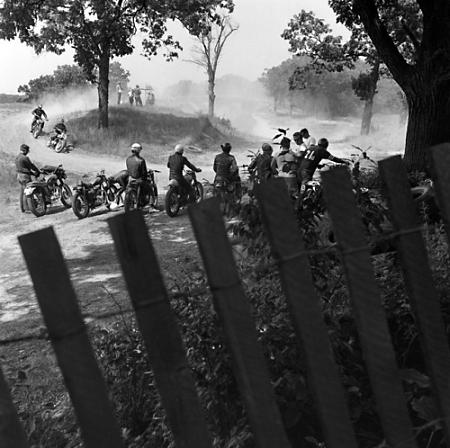
The Bikeriders
Danny Lyon
Charles A. Hartman Fine Artvia
_______________________
The Shocking Savagery of America’s Early History
Ron Rosenbaum reviews Bernard Bailyn, The Barbarous Years
smithsonian
(....)
Enter Bernard Bailyn, the greatest historian of early America alive today. Now over 90 and ensconced at Harvard for more than six decades, Bailyn has recently published another one of his epoch-making grand narrative syntheses, The Barbarous Years, casting a light on the darkness, filling in the blank canvas with what he’s gleaned from what seems like every last scrap of crumbling diary page, every surviving chattel slave receipt and ship’s passenger manifest of the living and dead, every fearful sermon about the Antichrist that survived in the blackened embers of the burned-out churches.
Bailyn has not painted a pretty picture. Little wonder he calls it The Barbarous Years and spares us no details of the terror, desperation, degradation and widespread torture—do you really know what being “flayed alive” means? (The skin is torn from the face and head and the prisoner is disemboweled while still alive.) And yet somehow amid the merciless massacres were elements that gave birth to the rudiments of civilization—or in Bailyn’s evocative phrase, the fragile “integument of civility”—that would evolve 100 years later into a virtual Renaissance culture, a bustling string of self-governing, self-sufficient, defiantly expansionist colonies alive with an increasingly sophisticated and literate political and intellectual culture that would coalesce into the rationale for the birth of American independence. All the while shaping, and sometimes misshaping, the American character. It’s a grand drama in which the glimmers of enlightenment barely survive the savagery, what Yeats called “the blood-dimmed tide,” the brutal establishment of slavery, the race wars with the original inhabitants that Bailyn is not afraid to call “genocidal,” the full, horrifying details of which have virtually been erased.
...(more)
_______________________
Raymond Tallis: Time's arrow
excerpt from Raymond Tallis' forthcoming book 'Time's Arrow'.
(....)
For the present, it is sufficient to note that the removal of consciousness from memory (or the information it is supposed to consist of) is a key step which creates the supposed connection between the thermodynamic trend towards higher entropy and the difference between a remembered past and a future of which we are ignorant. Memory is simply the altered state of the brain which is supposed to be more entropic. Increased information means more entropy means “later” compared with “earlier”. If, however, this were true, then any system that became more chaotic would be richer in information and hence have a state that was “later” than its earlier states. Its later state would count as memory-rich, though what its memories would be about is entirely unclear What is more, its present state would be a bidirectional glimpse into the past (which it would be related to its own past) and a future. In short, the lowliest item in the physical universe would have the very tensed time that “believing physicists” (according to Einstein himself) exists only as an illusion in the human brain (including the brain of physicists) that doesn’t seem to believe what their owners believe.
Many of those who seek the directionality of time in “the flow” or “accumulation” of information confuse the difference between “earlier” and “later” with the difference between a past we can remember and a future we may anticipate; a past of which we can have certain knowledge and a future about which we can only speculate. In other words, they confuse a putative intrinsic directionality of time with the asymmetry of the temporal gaze of a conscious individual located in time. The reduction of time asymmetry to information asymmetry conflates tenseless time with tensed time – losing the difference between “earlier” and “later” on the one hand an past and future on the other – and also confuses an epistemic difference with something more substantial. The difference between past and future is not just the difference between something we know and something we do not know. ...(more)
_______________________
New Poems by Simon Perchik
exquisite corpse
My hand struggling inside this tiny fish
makes a place --you won't believe it!
I can hear my hand along my arm
gutting that still warm evening
--even now, as we talk, each heartbeat
cries upstream for its mother
leaps heart over heart, heard its name.
You're nervous. I can tell.
You always come to the shed like this
throwing its screendoor over the table
over the belly --I'm making room
for the world, for the tears that cover my
body
--I can't breathe --quick! take my arm
this time deep enough for two
and waves leaving the sea forever.
...(more)
_______________________
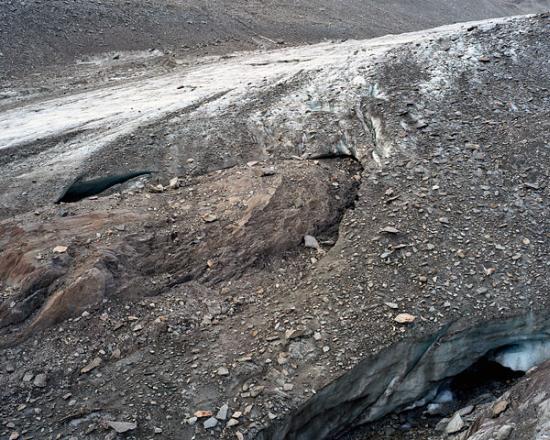
MEMENTO
Tonatiuh Ambrosetti _______________________
All the grace
Saima Harmaja
(1913-1937)
Translated by David McDuff
Poems from Huhtikuu ('April', 1932), Sateen jälkeen ('After the rain', 1935), Hunnutettu ('Veiled', 1936), Kaukainen maa ('Distant land', posthumous, 1937
There is a land to where
the traces of dreams disappear.
With each road my steps explore,
closer that land they make.
What here I lost, there I will find,
what here stammers, there is defined
in the land where illusions break.
...(more)
Saima Harmaja - an introduction
Vesa Haapala
Books from Finland

photo - mw
_______________________
11 IMPOSSIBLE OBJECTS
Norman Lock
DIAGRAM :: 12.6
23.
In the old cosmologies, chains forged of unassayable elements held the moon within Earth's sway and waves inside ocean's granite cup and also humankind between angels and animals (at war with both). Just so do staples hold in orderly collations documents against the forces that would disperse them—all except these, designed (with who knows what cunning and to what purpose) to unfold their zinc-plated legs and let go of the regimented pages. While not so catastrophic an end as would be were the moon to escape its orbit, the ocean overwhelm the town, and men and women forget their place in the Great Chain of Being, chaos would soon be loosed among the filing-cabinets—difficult, if not impossible, to put right again.
24.
Against the world's disorder, an ancient music box unlocked sounds inaudible to human ears (like a strain of vibrations Laplace might have described logarithmically) that caused rocks and stones to move in concert with the grand procession of the stars—silent, or so it seemed, in a night sky draped over solitary houses where people walked restlessly inside their dreams, but in actuality singing in solfeggio their alien and imperturbable harmonies.
25.
There was a book whose barbed typography scratched out the eyes of anyone who thought to read it, for none may know the meaning of their lives, which had been inscribed in that book (so fierce in its comprehension of our days and ends).
...(more)
Norman Lock
_______________________

Ralph Eugene Meatyard
1958-60
_______________________
In Memory of W. B. Yeats
W. H. Auden
I
He disappeared in the dead of winter:
The brooks were frozen, the airports almost deserted,
And snow disfigured the public statues;
The mercury sank in the mouth of the dying day.
What instruments we have agree
The day of his death was a dark cold day.
Far from his illness
The wolves ran on through the evergreen forests,
The peasant river was untempted by the fashionable quays;
By mourning tongues
The death of the poet was kept from his poems.
But for him it was his last afternoon as himself,
An afternoon of nurses and rumours;
The provinces of his body revolted,
The squares of his mind were empty,
Silence invaded the suburbs,
The current of his feeling failed; he became his admirers.
Now he is scattered among a hundred cities
And wholly given over to unfamiliar affections,
To find his happiness in another kind of wood
And be punished under a foreign code of conscience.
The words of a dead man
Are modified in the guts of the living.
But in the importance and noise of to-morrow
When the brokers are roaring like beasts on the floor of the Bourse,
And the poor have the sufferings to which they are fairly accustomed,
And each in the cell of himself is almost convinced of his freedom,
A few thousand will think of this day
As one thinks of a day when one did something slightly unusual.
What instruments we have agree
The day of his death was a dark cold day.
...(more)

W.H.Auden
b. February 21, 1907
photo by Cecil Beaton, 1953
_______________________
from Account
Martin Villanueva
High Chair
Hindsight
Isn’t the honesty of things
where they resist:
The ground,
how it pushes too
against your heel.
The shrivel of leaves
when burned. The sound
of leaves trampled.
One’s reflection—
left and right
switching places.
Those loose notes that fall
from between pages.
The muted phone,
the curtained window, the rain.
...(more)
_______________________
The Inexhaustible Murmur
Lars Iyer
Blanchot's Vigilance.
(....)
It is as though, for Blanchot, Surrealism contained its own latent content – that what is manifested as the desire for the surreal is only a desire for the neuter, and that the dreamwork is only a name for determination and interiorisation. In The Writing of the Disaster, Blanchot dreams of a psychoanalyst ‘for whom a sign would come from the disaster’; Freud would be one for whom this sign had not come even when he uses the word ‘es’ for what we in English know as the id.[xxxvii] This ‘es’ is not yet the Blanchotian ‘il’. It is in the name of the struggle with interiorisation, with determinacy, that Blanchot will attempt to do justice to Surrealism. A peculiar justice, insofar as it will transform what Breton calls absolute reality into the negative absolute, the vigilance of the surrealist into the vigilance of the il and automatism into the play of what Blanchot calls the neuter.
(....)
Who experiences the dream? It is necessary to reconceive the locus of experience – not is it the personal ‘I’, the one who is able to sleep or wake, but the exposition or unfolding of this ‘I’: the 'il'. The chance of this unfolding is there from the start, inhabiting experience as a kind of possible impossible. It is not a recurring dream, but what recurs in every dream; it is not the bearer of the personal secret, the key to a psyche which the psychoanalyst might unlock, but the exposure of the inside to the outside, the disclosure of the prior imbrication of the possible and the impossible, of time with time's absence. ‘Perhaps one could say that the dream is all the more nocturnal in that it turns around itself, that it dreams itself, that it has for its content its possibility’. To what latent desire does the dream attest? To the desire to be extinguished in the instant where the 'il' comes forward to take your place. The desire for the essence of the night, the interminable day.
Just as the dream of which Blanchot writes has no content, the image is only an affirmation of what breaks through our ordinary dealings with things in view of particular projects. Like the dream dreamed at the heart of the dream, the image is an experience of the real at the heart of the real, the reserve that is the opacity of things which do not place themselves at our disposal. This correspondence between the dream and what awaits us in the day is not surprising, for both bear upon the same enigma; if the essence of night and the interminable day are one, it is because they bear upon what Blanchot calls the image....(more)
_______________________
Rhizomes » Issue 25 (2013)
Edited by John Lennon and Matthew Burns
Introduction
Academics Don't Write: A Few Brief Scribblings and Some Questions
Joe Austin
I ride the subways in New York City. I am looking out of the window of the rear exit door in the last car of the subway train, looking back over the tracks where we have (collectively) traveled. Writing has (so far) racked up more than four decades of productive and innovative art making on trains and walls across our planet, creating radical art forms that have called into question implicit but inhumane "common sense" notions of urban social order, shared public space, and their enforced, inscripted legibilities and grammars. If I were to change my perspective, move up to the first car in the train, and look out the window of the forward exit door that faces future trajectories, I would see more (new) trains, more (new) walls, more (new) writing, more (new) art-making on the horizon. The bit of scribble that I offer here, these brief reflective observations, are an "interim report" on writing and its scholarly observers and publications, offered at some unknown middle point in the train ride. We seem to be a long way away from the last station, if there really is to be a 'last station" for this art movement. But we have traveled a long way from the first station as well.
The first thing I would note in observing what it behind us is the inexplicable gap between the fantastic accomplishments and powerful impact of writing's complex art worlds on urban social reality, compared with the amount of academic print that attempts to narrate its movements across time or understand its significance in contemporary life. ...(more)
_______________________
Affect & the Politics of Austerity
An interview exchange with Lauren Berlant
Variant issue 39/40
(....)
This looming overpresence of risk and the leeching out of even the phantasm of sovereignty across nations and persons translates into such a complex assemblage. Under the current conditions of debt and exposure, nation-states can’t bear to admit their abjection, can’t bear that they have become mere supplicants for the wealth that they have allowed to become privately held on behalf of a spectral growth on whose tithing the state has come to depend. The Euro-American state is a cowardly lion, a weeping bully, a plaintive lover to finance capital. It cannot bear to admit that, having grown its own administrative limbs to serve at the pleasure of the new sovereign of privatized wealth, that the wealthy feel no obligation to feed the state. So the state bails out banks and tells the polis to tighten up, claiming that the people are too expensive to be borne through their state, which can no longer afford their appetite for risk. They are told that they should feel shame for having wanted more than they could bear responsibility for and are told that they should take satisfaction in ratcheting down their image of the good life and the pleasures to be had in the process of its production. The affective orchestration of the crisis has required blaming the vulnerable for feeling vulnerable; not due only to a general precarity but also to the political fact that there is no longer an infrastructure for holding the public as a public. The public must become entrepreneurial individuals. All of the strikes and tea parties in response to the state’s demand for an austere sacrifice under the burden of shame tell us that this incitement for the public to become archaic as a public is not going down too easily.
The big question is whether the popular culture of a “civil society” unwilling to let go of the collective good life fantasy secured by a beneficent state can mobilize its assertion of its priority over market democracy in a way that can fundamentally restructure the state’s adjudication of capital, and meanwhile avoid fascism....(more)
_______________________
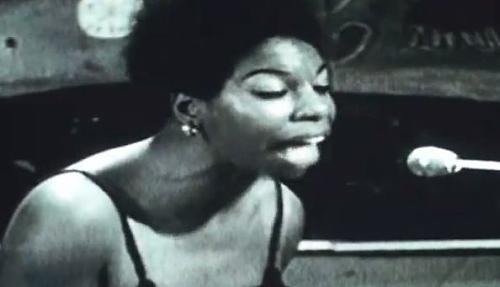
youtube
Mississippi Goddamn
Nina Simone
February 21, 1933 - April 21, 2003
......
Where am I going
What am I doing
I don't know I don't know
Just try to do your very best
Stand up be counted with all the rest
Cos everybody knows about Mississippi Goddam
I bet you thought
I was kidding didn't you
Picket lines school boycots
They try to say it's a communist plot
All I want is equality
For my sister my brother my people and me
Yes you lied to me all these years
You told me to wash and clean my ears
And talk real fine just like a lady
And you'd stop calling me Sister Sady
Oh but this whole country is full of lies
You're all gonna die and die like flies
I don't trust you anymore
You keep on saying go slow go slow
But that's just the trouble too slow
...(more)

First Reflection
New York, 1939-1940
Lisette Model
1901 – 1983
_______________________
Excerpt from Nadja, 1928
André Breton
b. Feb. 19, 1896
"Who am I? If this once I were to rely on a proverb, then perhaps everything would amount to knowing whom I 'haunt.' I must admit that this last word is misleading,tending to establish between certain beings and myself relations that are stranger, more inescapable, more disturbing than I intended. Such a word means much more than it says, makes me, still alive, play a ghostly part, evidently referring to what I must have ceased to be in order to be who I am. Hardly distorted in this sense, the word suggests that what I regard as the objective, more or less de liberate manifestations of my existence are merely the premises, within the limits of this existence, of an activity whose true extent is quite unknown to me. My image of the "ghost," including everything
conventional about its appearance as well as its blind submission to certain contingencies of time and place, is particularly significant for me as the finite representation of a torment that may be eternal. Perhaps my life is nothing but an image of this kind; perhaps I am doomed to retrace my steps under the illusion that I am exploring, doomed to try and learn what I should simply recognize learning a mere fraction of what I have forgotten. ...
_______________________

Cadavre exquis
André Breton, Jacqueline Lamba, Yves Tanguy
9 February 1938
_______________________
The Business: On the Unbearable Lightness of Art
Dieter Roelstraete
Of course, we should note here that the cult of lightness, litheness, and slightness in art also has a social quality, and here too the embattled concept of the nobility of work plays a crucial role: the rejection of, or resistance to, work, and the concomitant glamorization of effortlessness, are little more than contemporary updates of the concept of genius (which, it turns out, we were much too quick to dismiss as historically exhausted)....(more)
e-flux #42 February 2013
_______________________

Gabriele Münter
b. Feb. 19, 1877
_______________________
How Fiction Works
Michelle Chan Brown
Here is the way to build minor disaster:
a car, a doomsday joke, an opening line.
Say the dictator's elegant wife is Vogue's
Rose of the Desert, posed with her heirs
by the fountain full of huntable coins. Blow that up.
The people are software, she said. By all means,
use the old fairy tales, with an industrial mixer,
a matte finish. There will always be a forest—
the flowers are crepe, and the birds gorgeous metal,
their eyes the buttons of widows' war coats.
The story is the slickest form of taxidermy.
...(more)
Boxcar Poetry Review - Issue 31
Michelle Chan Brown
via The Page - Poetry, essays, ideas
_______________________
Notes toward an object-oriented poetics
Brian Kim Stefans
The basic idea
(....)
... I’d like to attempt something that has been largely unfashionable in recent literary history, which is to describe poetry — the very category of “poetry,” the actions of individual poems, the corpus of poems attributed to individual “authors,” and the way poetry is evaluated either by the casual reader or the professional reviewer and academic -- in terms that derive from the metaphysical tradition of philosophy dating back to the pre-Socratics. Naive?
I’m hardly looking for eternal or absolute “truths” about poetry and poems so much as to liberate poems from what I feel has been a dispiriting attempt, largely by either a passive or active support of a “post-structural” emphasis in thinking, either casual or academic, to describe poems themselves as symptoms of social, material or even ethical forces, just stuff that happens to crop up when different human interests collide, cohere, or otherwise conspire which we are more or less forced to be interested in because someone, somewhere, decided that “poetry” is of central importance to the progress of mankind.
My own sense is that poems, and by extension “poetry” itself, has managed to survive, or at least be of perennial interest, regardless of whether the poet was a good person, out of date person, attentive to the language of their time or hopelessly antiquated in vocabulary or diction, a master of fifteen languages or a mere novice in one, good with money, bad with mascara, etc. And regardless of the poet, what of the poem itself?
_______________________

André Kertész
1894 - 1985
_______________________
The consternation of philosophy: Exodus by Lars Iyer
Stephen Mitchelmore
This Space
(....)The Spurious Trilogy as it must now become known might be this pause before the fact of philosophy, revealed here as a pause itself, a dwelling inside this space of writing, the secret centre of all work. Perhaps this is the location of W.'s despair and why he asks Lars to record everything he says, knowing it too will fall into the silence of writing, a silence which only Lars can betray.
...(more)
_______________________

Gabriele Münter
_______________________
How is it that subject and individual seem blurred and even equated in contemporary thought?
How is it that the subject becomes an individual?Jodi Dean
(....)
It's clear enough that psychoanalysis is the study of failure, the specific failure of the individual form. The object of its discourse is nothing but this failure. Hence, the scandal of Lacan is to place nothing at all at the heart of the subject, to recognize that 'subject' names nothing but a gap or lack. Every component of the psychic apparatus, evey arrangement of the economies of desire and drive, every discourse that constitutes a social link works around, over, and through this emptiness, investing it with a charge or intensity such that it always seems more than itself.
And, why not, Marx and Nietzsche also give rise to the two other primary studies of failure inextricable from the waning of European modernity: the failure of capitalism and the failure of morality (Corey Robin is pursuing an exciting project that makes the operative term here "value," as he notes the convergence between the ungrounding of value in Hayek and in Nietzsche). In this vein, what becomes postmodernity or late-modernity is resignation, complacency, acquiescence, compromise, and melancholia. No grand narratives, no utopia, no ideals. Even that political form said to be the best, democracy, is acknowledged as unworkable, not so good, only viable because everything else is worse. Political maturity, political realism, is accepting this sorry state with good humor and irony.
The happy story left behind was one of modernity as a kind of triumph, the liberation of reason from dogma, of the individual from the collective, of creativity from stultification and determination within a realm of traditional culture that confined individuals within pregiven roles. And even as our discourses of failure have taught us, rightly, to critique and reject the happy story, how is it that its terms and suppositions persist? More specifically, how is it that some kind of individual free from the collective is so frequently turned to and invoked, the limit of any political project as if struggle were only and ever liberal?
How is it that the subject remains reduced to the individual, as if there were an individual who is subjected rather than a collective, exercising the power of its own self-determination, that becomes fragmented and desubjectified, pacified as it is divided up into ever smaller portions?
...(more)
_______________________
Scientology for Rednecks: What the GOP Has Become
Michael S. Lofgren
As with many religions, political parties have a tendency to start as a movement, transform into a business, and finally degenerate into a racket designed to fleece the yokels. One organization which has gone out of its way to illustrate this evolution is the Republican Party. And it has done so with a national scope and fundraising apparatus that would have made Jimmy Swaggart or Jim and Tammy Faye Bakker mute with awe....(more)

Daniel Shea
Blisner, Ill.: A Conversation With Daniel SheaThe Great Leap Sideways Stanley Wolukau-Wanambwa, Editor
_______________________
Poetry Is a Celestial Transgression
Vicente Huidobro
English version by Tom Clark
I'm not here but at the depths of this not being here
There is a waiting for myself
And this vigil is another way of being here a waiting
For myself to come back into myself
While waiting I go out
Into other
Objects
In this going out I give away a little of my life
To certain trees certain stones
That have been waiting for me
All these years
Tired of waiting they have given up hope and fallen back
Into themselves
I'm not and I am
I'm not here and I am here
In a waiting
State
They wanted
My language
To express them
And I wanted theirs
To express
Them
And in this lay the mistake the great
Error
...(more)
Vanitas Magazine
_______________________

Fourth Avenue Bookstall
circa 1947
Andreas Feininger
d. Feb. 18, 1999
_______________________
Literature's nuisance: (Riding) Jackson's memoir
A review of ‘The Person I Am: The Literary Memoirs of Laura (Riding) Jackson’
Becky Peterson
Rarely do authors talk back to the literary apparatus — criticism, reviews, biographies —that builds up around their work. In the two-volume collection of Laura (Riding) Jackson’s “literary memoirs,” (Riding) Jackson does just that, while also providing new insights into her theories on literature, ethics, and the topic of memoir itself. As (Riding) Jackson wrote in 1984, she faced “a stream of published erroneous representations of myself, my thought, my writings” (2:229). In responses to her work and in accounts of her life, (Riding) Jackson has indeed been villianized, marginalized, and ignored. Many in academic and poetic scholarship (including myself) have attempted to reclaim (Riding) Jackson from these representations; adding to these recent scholarly attempts, The Person I Am offers a valuable, personal defense of the author and her work.
...(more)
_______________________
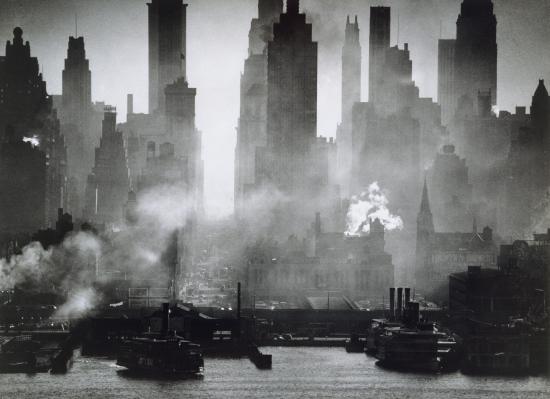
Midtown Manhattan
Seen from Weehawken, New Jersey
Andreas Feininger
_______________________
Dante's Sublime Comedy.Hell:Chapter 7
Alasdair Gray
"Daddy Mephisto! Daddy Buguboo!"
gargled the demon. Like a bulging sack
his bloated body almost filled the gap
torn in the cliff our track descended through.
"Never fear him," murmured my gentle guide.
Pointing at Plutus swollen face, he said
"Shut up, you wolfish clown! Chew your own gut!
Our journey into Hell is willed on high
where archangelic swords cut rebels down!"
As billowing sails of scudding ship
crumple of tangles if the mast collapse,
so crumpled Plutus. We descended past,
arriving at the fourth shore round the bin
all evil sinks to, where I stared amazed
by the insanity that raged therein.
Justice of God! I cannot understand
why men condemn themselves to endless pain
by madly chasing earthy loss and gain.
...(more)
_______________________
Resources for (Re)Thinking the World
Michael Benton
dialogic
_______________________
Paul Ricoeur's Pedagogy of Pardon: A Narrative
Theory of Memory and ForgettingMaria Duffy
review by Solomon Davis
Essays in Philosophy
Grounding Relation(s)
Vol. 14 > Iss. 1 (2013)
_______________________
The five stages of climate change acceptance
Andrew T. Guzman
_______________________

Andreas Feininger
_______________________
So Far Away from Spring
Robert Gibbons
Lumpy pudding
(....) She says snow is at it again Sunday morning forcing us up a bit earlier to dig simple pleasure, heightening aesthetic slightly, & juxtaposing it to silly spring styles the New York Times tries brainwashing shallow fashion conscious readers, (consciousness Freud termed “a symptom”) skin bones anorexic. No, give us widespread snow & chilly wind keeping spring at bay for at least another month....(more)
_______________________
Omniglot Seminar: Experimental Translation from Dante to Roselli
youtube
Mary Jo Bang (author of Elegy and the recent variations on Dante's Inferno) and Jennifer Scappettone (translator of the award-winning Locomotrix: Selected Poetry and Prose of Amelia Rosselli and author of From Dame Quickly) explore the ways that their translation projects intersect with and enlarge their own poetics.
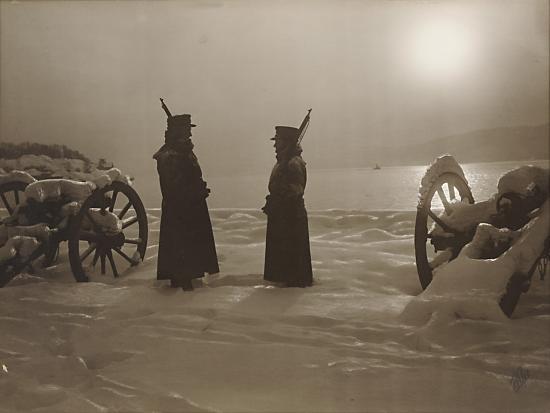
Leonard Misonne
(1870 - 1943)
_______________________
The Enlightenment’s ‘Race’ Problem, and Ours
Justin E. H. Smith
nyt
(....)
It would take explicitly counter-Enlightenment thinkers in the 18th century, such as Johann Gottfried Herder, to formulate anti-racist views of human diversity. In response to Kant and other contemporaries who were positively obsessed with finding a scientific explanation for the causes of black skin, Herder pointed out that there is nothing inherently more in need of explanation here than in the case of white skin: it is an analytic mistake to presume that whiteness amounts to the default setting, so to speak, of the human species.
The category of race continues to be deployed, not just by racists, but by anti-racists as well.
The question for us today is why we have chosen to stick with categories inherited from the 18th century, the century of the so-called Enlightenment, which witnessed the development of the slave trade into the very foundation of the global economy, and at the same time saw racial classifications congeal into pseudo-biological kinds, piggy-backing on the divisions folk science had always made across the natural world of plants and animals. Why, that is, have we chosen to go with Hume and Kant, rather than with the pre-racial conception of humanity espoused by Kraus, or the anti-racial picture that Herder offered in opposition to his contemporaries?
...(more)
_______________________
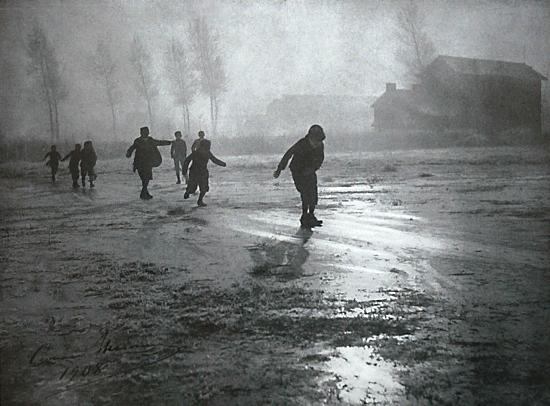
Leonard Misonne
_______________________
Sonnet 19
For Phillipe Courrege
With papers, crayons, ink, colors, with
Signs then words, with rules to assemble
Them, with persistence and the aid
Of habit (but who knows the quiet that
Rusted your power, the white Verlainian sky,
The cries of the schoolboy Author)
You built something more than language, something
Weighty and beautiful, rendering this difficult truce
Between thoughts, speech, and the hand:
Mathematical laborer, I salute
Your example, and I tell the men
Of tomorrow how this cloudwatcher diffused the magic,
How many stand upon the tool you wrought,
Worthy, genial, growing inside the signs
Four Sonnets
Jacques Roubaud
translated by Michael Reid Busk
conjunctions
_______________________

Leonard Misonne
_______________________
The Resistance of Melancholics
David Auerbach
(....)
Swartz’s antagonists will stigmatize him as mentally ill in order to absolve themselves and dismiss his opinions. It would be more useful to acknowledge that the world does not welcome angry activist melancholics like him, preferring they turn their anger against themselves and go off and become harmless artists, bohemians, or critical theorists. One lesson to take from Swartz’s death is that melancholic maladjustment is a legitimate and even expected response to our society by a painfully intelligent and ethical human being.
This maladjustment, sadly, puts genius melancholics at a great disadvantage against Lloyd Blankfein, Dick Fuld, the Koch brothers, Roger Ailes, Michael Bloomberg, Robert Rubin, and their ilk. There are two wholly opposing sides, one based on a utilitarian progressivism, the other based on exploitative disenfranchisement. They are at war; Swartz is a casualty....(more)
Triple Canopy
_______________________
Poet of aftermath
Randall Couch
But there is one unfortunate difference between us [the British and the Greeks], one little difference. We Greeks have lost our capital – and the results are what you see. Pray, my dear Forster, oh pray, that you never lose your capital. — C.P. Cavafy to E. M. Forster, 1918
The proliferation of English translations of Cavafy’s poems in recent years has been remarkable, notable even for the work of a poet to whom recognition came belatedly and international acclaim largely after his death in 1933. The first extensive selection, by George Valassopoulo—presumed to be the only one seen by Cavafy himself—remained unpublished until 2009. John Mavrogordato’s versions, preferred by Cavafy’s executor, appeared in 1951; Rae Dalven’s volume, introduced by W.H. Auden, came out in 1961. Important collections were published in 1972 and 1975 by the team of Edmund Keeley and Philip Sherrard. Though a handful of selections appeared in the interim, until the late 1990s most Anglophone readers and poets knew Cavafy, if they knew him at all, through Dalven or Keeley and Sherrard.
As the Cavafy archive, under the ownership of G.P. Savidis and later his son Manuel, has made available “repudiated” and “unfinished” poems excluded by the poet from his authorized corpus, this material, along with Cavafy’s growing influence on a new generation of writers, has stimulated a cottage industry in Cavafy translation. ...(more)
|
